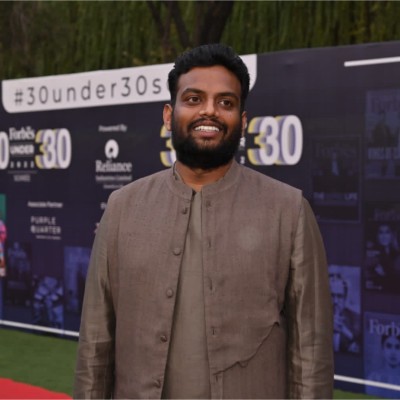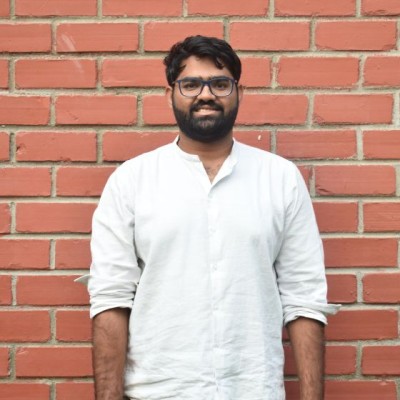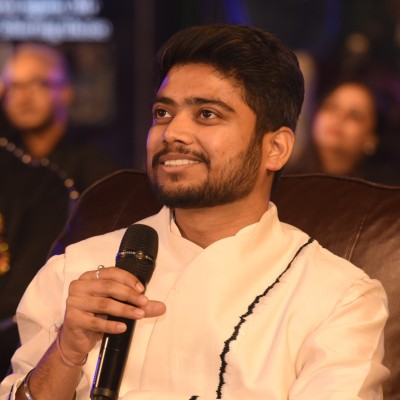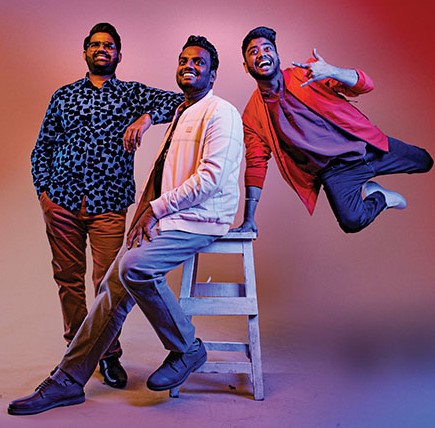(April 6, 2024) While volunteering during the relief efforts for the 2015 Chennai floods, Anil Kumar Reddy found out that although many people donate goods, their contributions don’t really align with the actual necessities on the ground. It sparked the inception of Donatekart, a platform where donors don’t simply give away anything or donate money in the traditional sense, but instead shop for specific items requested by nonprofits, as per the actual requirements of the ground.
At the time, Anil was pursuing engineering at the Visvesvaraya National Institute of Technology in Nagpur. He made the bold decision to forego a campus job offer from a grocery-tech startup to pursue his social entrepreneurship journey with his venture Donatekart.
His friends Sandeep Sharma and Sarang Bobade joined the initiative with a shared purpose, and together, the trio achieved great milestones while positively impacting lives.

Anil Kumar Reddy, founder, Donatekart
Founded in August 2016, the social enterprise secured ₹25.5 million in seed funding from a consortium of investors led by LetsVenture in its third year. In 2022, Anil, Sandeep, and Sarang were featured in the Forbes 30Under30 list in the social entrepreneurship category. The social enterprise has begun expanding internationally with a campaign for the Turkey earthquake in 2023 that killed more than 40,000 people.
The Donatekart model
Donatekart’s business model revolves around facilitating donations of supplies that meet the specific needs of beneficiaries. The social enterprise assists nonprofits in launching crowd-sourcing campaigns and outlining the precise products they require, ranging from grocery kits to medical supplies, construction materials, stationery, and educational digital devices.
“When we saw the problem while volunteering for the Chennai floods as students, we realised that no one else has built any solution around the problem. As budding engineers, we felt our idea was good enough to start off as we would be the first people to work in this space.” remarked Anil in an interview with Forbes.
Donors can choose from any products listed on the campaign page while donating to their favourite cause. The donors add their supplies to their online shopping cart the way they do in their other shopping sprees.


Sandeep Sharma, CMO and Cofounder, Donatekart
Donatekart procures the products, delivers them straight to the NGOs without any monetary transactions with them, and furnishes reports to donors detailing the utilization of funds.
Given that these items are typically acquired in large quantities, the enterprise garners an average commission of 10-15 percent per transaction, constituting its primary revenue stream. Additionally, donors have the option to contribute to six percent of their donation value to the platform.
“If you look at the percentage of the population giving to charities in India, it’s less than 30 percent but if you look at developed countries like the US and the UK, it’s over 70 percent. So, we believe that with our transparent product donation model we can bring in every individual to contribute at least two percent of their annual income to various charitable causes.” Sandeep remarked.
Milestones and expansions
2019 was an eventful year for the social entrepreneurs. Apart from earning Rs 25.5 million in seed funding from a consortium of investors like Shanti Mohan, founder of LetsVenture and former cricketer Yuvraj Singh, the team was invited by Bill and Melinda Gates Foundation.
In 2021, the social entrepreneurs were thrilled to surpass the one billion mark by successfully raising over $1 billion worth of products with support from five lakh donors. Amid the second wave of Covid that same year, they raised $300 million worth of medical products.”


Sarang Bopade, CEO and Cofounder, Donatekart
Last year, the social entrepreneurs extended their efforts beyond India to provide rapid disaster response for the Turkey earthquake, which impacted thousands of lives.
“We aim to be a market leader in retail giving across sectors and causes,” remarked Sandeep.
So far, Anil, Sandeep, and Sarang have successfully raised over ₹200 crore impacting more than 1400 NGOs through over 5000 campaigns and counting.
More than 50 brands and companies have partnered with Donatekart on their philanthropic and CSR journey. Additionally, several celebrities have come forward to lend a helping hand and start fundraisers on Donatekart.
The trio
Coincidentally, all three – Anil, Sarang, and Sandeep are currently 28 years old. Apart from Donatekart, Anil Kumar Reddy and Sandeep Sharma are also co-founders of Devaseva. The startup organises authentic pujas online based on the Vedic calendar on auspicious days throughout the year, providing devotees an opportunity to participate in sacred rituals from their homes if they find organising a puja for every occasion challenging.
While Anil and Sandeep were batchmates at Visvesvaraya National Institute of Technology in Nagpur, Sarang Bopade pursued his bachelor’s at the Institute of Chemical Technology in Mumbai. They received the Nasscom Social Innovation award in 2018.


Anil Kumar Reddy, Sandeep Sharma, and Sarang Bobade | Photo Credit: Forbes
Looking at future with hope
The social entrepreneurs view Donatekart’s growth as a reflection of the increasing trend in online crowdfunding.
“If you look 10 years back, people did not know what crowdfunding or crowdsourcing was.” Anil remarked. “A lot has changed in the last 10 years mostly because of the mobile penetration and the financial inclusion that has happened. Today more than 350 million people do online transactions on a daily basis. On Donatekart we have one million people who have donated to one or the other cause. Our goal is to reach 50 million donors in the next five or 10 years down the line,” he added, looking at the future with hope.
- Follow Anil Kumar Reddy, Sandeep Sharma, and Sarang Bobade on LinkedIn
- To know more about Donatekart visit its website




